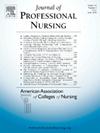Social entrepreneurship and public health nursing knowledge: Opportunities for innovating nursing education in population health
Abstract
Public health nursing (PHN) competencies are fundamental for addressing population health inequities. Few pathways exist for employing these competencies in the United States (US). Social entrepreneurship in nursing education might provide opportunities for innovating engagement in population health. Partnerships between business and nursing schools have the potential to fulfill this opportunity. Purpose: Explore opportunities for re-invigorating public health nursing through social entrepreneurship education in nursing-business partnerships in U.S. universities. Methods: Reviewed programs in nursing/business school partnerships from Carnegie-classified R1 Universities. Identified appropriate coursework. Results: Of 96 identified nursing schools, eight had business school partnerships, providing 12 programs. Most programs (n = 11) targeted graduate students and addressed core competencies for entrepreneurship. Five business schools had entrepreneurship expertise. Five nursing schools had PHN expertise. Three programs included population health competencies. Discussion: Despite missed opportunities for advancing social entrepreneurship education among undergraduate and graduate nursing students, existing curricular offerings in the partnerships provide promise. Business/nursing partnerships and PHN knowledge can stimulate the preparation and agency of nurses in addressing population health inequities.

 求助内容:
求助内容: 应助结果提醒方式:
应助结果提醒方式:


